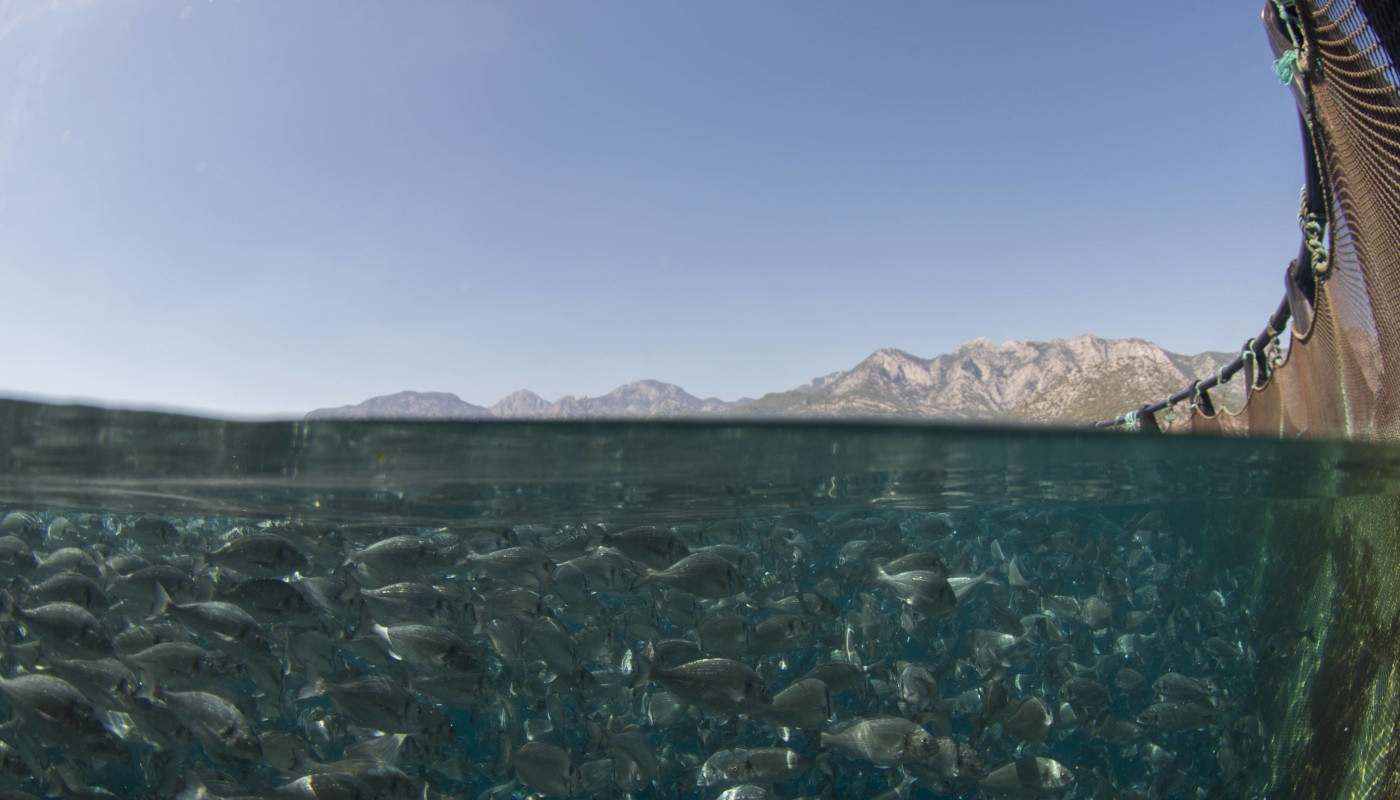
Since 2016, we have been working to reduce the suffering of fishes and other aquatic animals in aquacultures. To this end, we have established the Aquaculture Welfare Standards Initiative (AWSI). Its 34 members from economy, science, administration and certification are committed to raising the standards in Germany and worldwide. The representatives from the economic sector include the large German supermarket chains, which, as we all know, can make a big difference in animal welfare. The work of the initiative has now shown first results, which we are excited to share here.
Joint position paper
The initiative’s members have published recommendations for core areas, where improvements are especially critical in order to raise animal welfare standards:
- Water quality
- Animal handling
- Feeding
- Transport
- Stunning and slaughter
Water quality is the most important animal welfare criterion, which may be a little counterintuitive at first. The specific needs depend on the respective animal species. The main goal is to keep certain water quality parameters, such as temperature, oxygen content, carbon dioxide, ammonia, and nitrate, at levels that will not cause harmful stress on the animals.
The criterion »animal handling« is specifically intended to limit the number of times an animal is removed from the water, because this causes a lot of stress (from an evolutionary standpoint, removal from the water usually means that the animal has been captured by a predator). When animals need to be transferred to another tank, while again seeming a bit counterintuitive, it is better to guide them through pipes underwater than to capture them with nets and remove them from the water.
With regard to feeding, it is important that fishes receive all nutrients they require and that feed is administered in a way that does not cause stress or even fighting. The initiative would welcome further reductions of animal components in feed, as long as all essential nutrients are still provided.
For transports, it is important to reduce them to a minimum or to avoid them altogether. If transports are needed, stress should be reduced by choosing appropriate transportation containers, maintaining water quality, etc.
Worldwide, animals from aquacultures are usually killed without any prior stunning, which causes a lot of suffering. The initiative wants to ensure that slaughter will only take place after effective stunning.
Putting words into action
The position paper itself does not reduce any suffering yet, but it is important groundwork for all further steps. Food retail companies and other large commercial customers prefer complying with higher animal welfare standards when those are covered by existing certification systems such as ASC or Global G.A.P. Both are members of the AWSI. The initiative has been collaborating with Global G.A.P. since 2018. The latter are currently working on improving their own standards and including topics brought forward by the AWSI. Their standards will be published in 2022. Likewise, ASC is revising its standards and will be publishing next year as well. The AWSI has introduced its collaboratively developed recommendations (also in cooperation with ASC) and will be supporting their implementation.
Next steps
One of our goals is to have more and more European supermarket chains join the AWSI. Another is to convince more and more aquaculture production businesses to raise their animal welfare standards to an extent where they will at least fulfill the criteria of the AWSI position paper. Once we have accomplished that, it will be crucial to further raise the animal welfare standards step by step.
Our recommendations for consumers
On the one hand, we believe it to be very important to appreciate any progress, which is why we are thanking the members of the AWSI for their efforts to raise animal welfare standards. At the same time, however, we always encourage consumers to choose plant-based products over animal products because, after all, it is simply unnecessary to kill animals for food purposes.